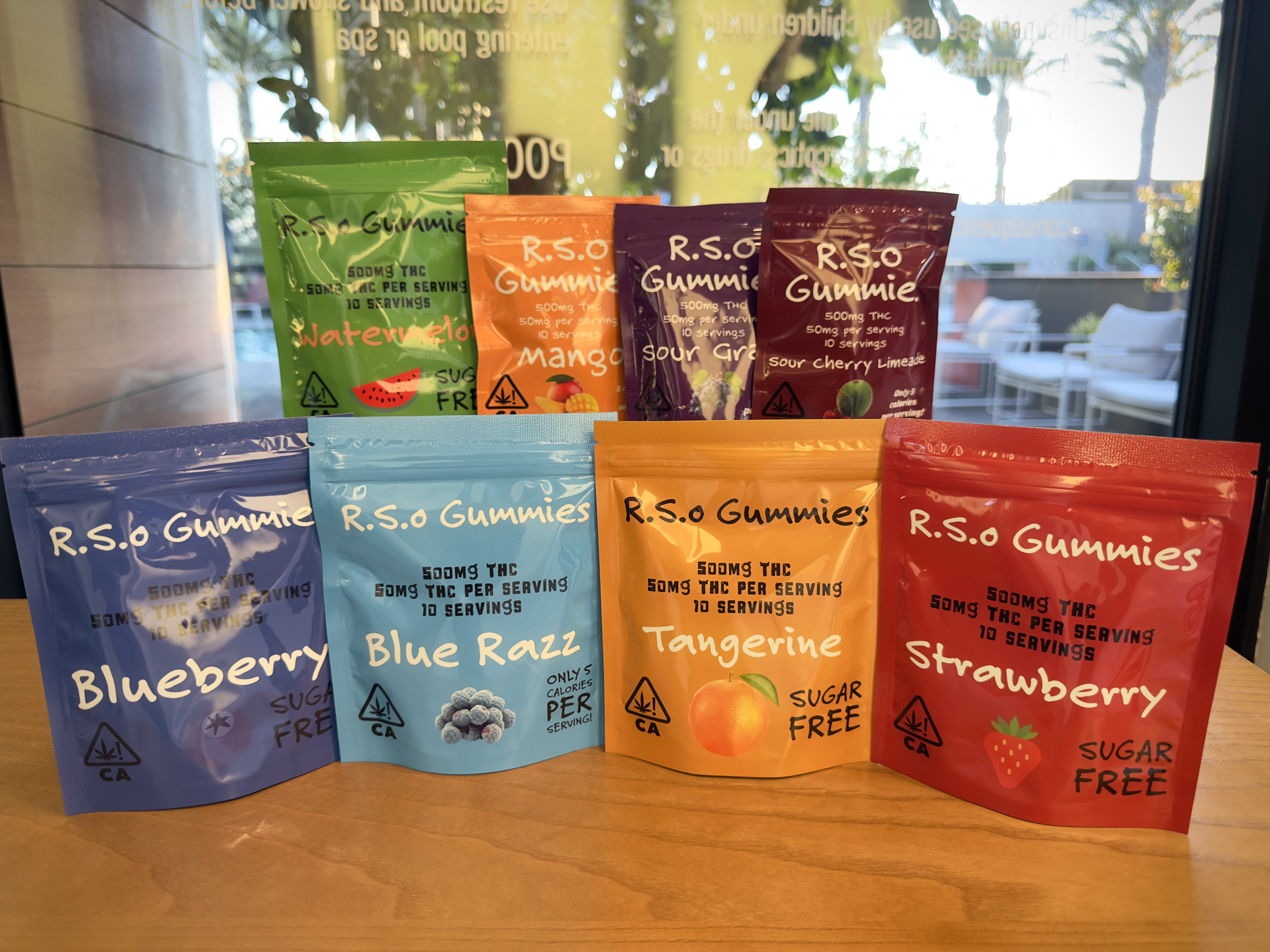Rick Simpson Oil (RSO) is a high-THC cannabis extract that many patients depend on for relief from cancer, tumors, chronic pain, and other serious conditions.
For those who rely on it daily, one common concern is whether RSO expires. It does have a shelf life, but it doesn’t go bad. Instead, cannabinoids break down over time, reducing potency.
With proper storage, RSO can remain effective for years. This article covers how long it lasts, how to recognize expired oil, the best storage methods, and whether it’s safe to use after expiration.

How Long Does RSO Last?
In the right conditions, pure, alcohol-based RSO can last up to 10 years. Alcohol acts as a natural preservative, slowing the breakdown of cannabinoids and terpenes.
Added ingredients such as oils, gelatin, or sugars can shorten longevity, though. Here’s a breakdown of the most common RSO products and how long they typically last when stored properly:
- RSO syringes (pure oil): Up to 10 years when kept cool, dark, and airtight.
- RSO tinctures: Alcohol-based tinctures can last 5–10 years. Oil-based tinctures usually last 1–2 years.
- RSO capsules: 12–24 months, limited by the stability of the carrier oil.
- RSO gummies and candy: 12–24 months, due to sugars, gelatin, and flavorings breaking down sooner.
- RSO suppositories: 12–24 months, depending on the fats or bases used.
- RSO pre-rolls/joints: 6–12 months; flower degrades faster than extracts, especially if exposed to light or air.
Expiration dates on RSO packaging usually reflect state regulations, not the true point the oil ‘goes bad.’ Properly stored RSO often stays effective well beyond the one-year mark on most labels.
Does RSO Go Bad Over Time?
RSO does not go bad, but it does lose potency as it ages.
Over time, THC breaks down into CBN, a cannabinoid with more sedative effects. As a result, older RSO may feel weaker or make you drowsier than expected..
These changes don’t make RSO unsafe, but they can reduce the consistent relief patients depend on.
For patients with cancer or chronic pain, degraded oil may not provide the relief they need.
Signs That RSO May Have Expired
Patients who need consistent dosing should watch for these signs that RSO may no longer be at its best:
- Change in color: Oil or tinctures may look darker or turn cloudy.
- Change in texture: Oil can get too thick or runny; capsules may soften; gummies may harden or melt.
- Change in smell or taste: A stronger, bitter, or unusual odor or flavor may signal degradation.
- Reduced effectiveness: If a familiar dose feels weaker, potency has likely declined.
How to Store RSO for Maximum Shelf Life
RSO can last for years if stored correctly. Here’s how to store it to get the most out of every dose:
- Keep it cool and dark: Store RSO away from heat and direct sunlight. A cabinet or drawer works for short-term storage.
- Use airtight containers: Oxygen speeds cannabinoid breakdown. Syringes and sealed glass containers work best.
- Refrigeration for longer use: Refrigeration can extend shelf life to one or two years.
- Freezing for maximum preservation: For larger amounts, freezing in an airtight container can preserve potency for many years. Let it thaw gradually to avoid texture changes.
Light, heat, air, and moisture are the biggest threats to RSO’s stability. Protecting against them helps keep the oil strong for years.
Is Expired RSO Safe to Use?
Expired RSO is rarely unsafe, but it may not provide the results patients expect.
Unlike food, it doesn’t spoil or grow harmful bacteria when stored properly. Instead, cannabinoids break down, weakening their effects.
For patients managing cancer, tumors, or severe pain, this loss of potency can make treatment less consistent. Expired RSO isn’t harmful, but it’s not reliable for treatment.
Patients who need dependable results should use fresh, properly stored RSO from a trusted source.
Conclusion: Does RSO Expire?
RSO does expire, but not like food or other perishables. It doesn’t become unsafe, but it does lose potency as cannabinoids break down. When stored in a cool, dark, airtight place, it can last for years.
For patients managing cancer, tumors, or chronic pain, this loss of potency can affect treatment. Fresh, properly stored RSO remains potent and effective over time.
To guarantee potency and safety, always buy authentic RSO directly from RickSimpsonOil.com. Our products are lab-tested, packaged with care, and stored to preserve the potency patients rely on.
Does RSO Expire: Frequently Asked Questions
Here are the most common questions about RSO shelf life and storage.
What is the shelf life for RSO?
Pure, alcohol-based RSO can last up to 10 years when stored correctly. Capsules, gummies, and other products with added ingredients usually last 12–24 months.
Should you refrigerate RSO?
Yes. Refrigeration helps extend RSO’s shelf life to one or two years. For long-term storage, freezing in an airtight container is best.
Where is the best place to store RSO?
Store RSO in a cool, dark place in an airtight container. Light, heat, and air break down cannabinoids, reducing the oil’s strength.
Does heat ruin RSO?
Yes. Heat breaks down cannabinoids and reduces RSO’s potency. Store it away from direct sunlight, stoves, and other heat sources.
Can you use RSO past its expiration date?
Expired RSO is rarely unsafe, but it does lose potency. For patients with serious conditions, fresh oil provides the consistency they need.







